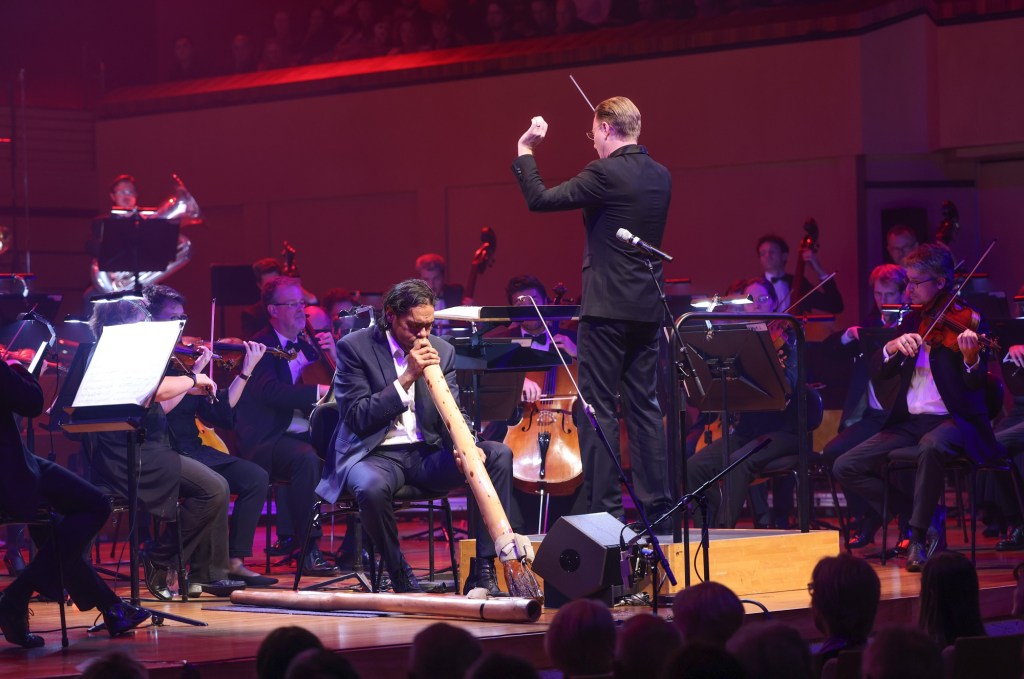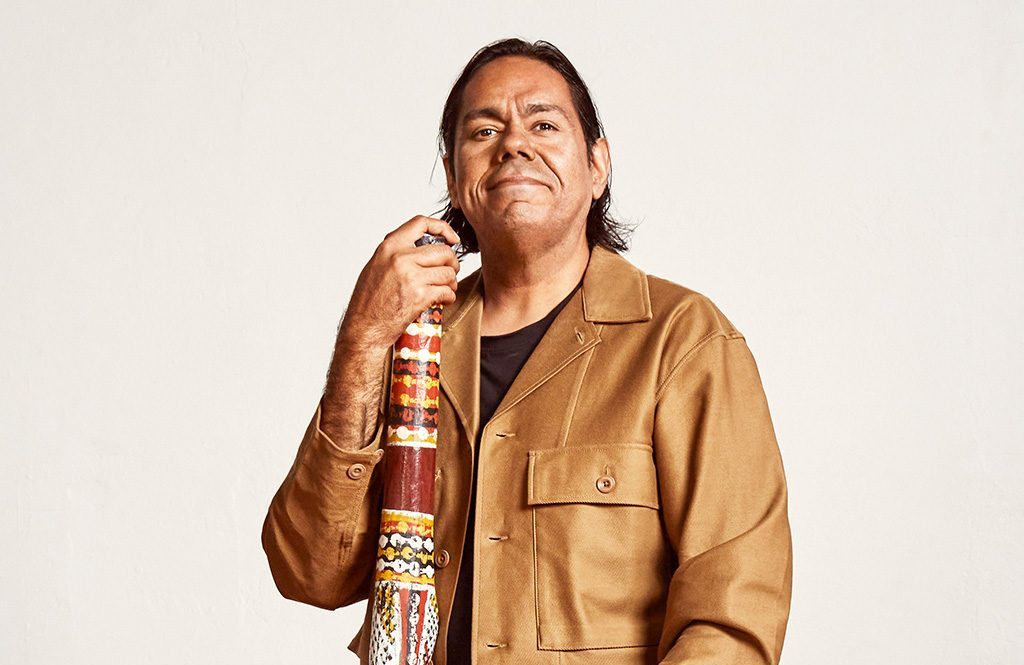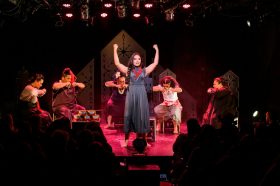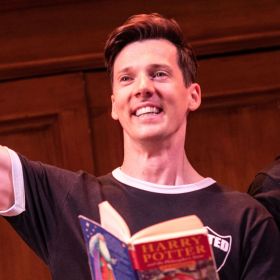If the events of the past three years have almost persuaded you to keep the doors to your fellow humans closed for good, then Queensland Symphony Orchestra has just the ticket for you.
‘The theme for 2023 is humanity,’ said QSO’s new Chief Conductor, Umberto Clerici. ‘After the past few challenging years, I felt we needed music that celebrates sociality, friendship, and community.’
And few works of classical music speak more universally to the notion of humanity than Beethoven’s Symphony No. 9, the ‘Ode to Joy’, which the QSO will present in a series of three concerts featuring didgeridoo virtuoso William Barton, the remarkable violinist and singer Véronique Serret, opera stars Eleanor Lyons, Deborah Humble, Andrew Goodwin and Michael Honeyman, and the stirring voices of the Brisbane Chamber Choir.
Beethoven’s musical setting of Schiller’s poem An die Freunde, is among the composer’s most universally known works. Since 1972, it has been the official Anthem of Europe, with Herbert von Karajan’s instrumental arrangements – for solo piano, for wind instruments and for symphony orchestra – played during European Union formal events.
In 2008, ‘Ode to Joy’ was temporarily used by Kosovo as its national anthem; it has served as the theme song for major international soccer tournaments; and in 2017, members of the UK Parliament from the Scottish National Party sang ‘Ode to Joy’ during a vote at the House of Commons as a protest against Brexit.
‘It’s a piece that’s somehow always managed to be relevant to the time it’s being played in,’ Barton told ArtsHub.
A work of thrilling musical power, at its heart it’s also one that tells a story, he continued. ‘It comes from that time when composers were thinking nationalistically – as Germans, as Italians, or whatever. They were inspired by the landscapes around them, their stories. And that’s something I’ve always done, in whatever kind of music I’m playing, classical or not.
‘For me, music is always about stories and places, and when I play it with QSO, I’ll also be telling a story about the land it’s being performed on now. Everything comes from the land. Everything comes from somewhere.’

Born and raised just outside Mount Isa, Queensland, Barton is a master of the didgeridoo. He took to the instrument as a child, coached by his uncle, Arthur Peterson, an elder of the Wannyi, Lardil and Kalkadunga people. At the same time, he was also absorbing the sounds of his mother’s record collection (Elvis Presley was an early favourite), Beethoven and Vivaldi from the radio, and AC/DC in his cassette player.
By the age of 12, Barton was regarded as a prodigy and working in Sydney playing in a dance company. By 15, he was touring America. Aged 17, he made his classical debut with QSO and became Australia’s first didgeridoo artist-in-residence.
In 2012, Barton won an ARIA Award for his classical album Kalkadungu, composed a world premiere work for members of the Berlin Philharmonic at Sydney Opera House, and unveiled his debut string quartet, Birdsong at Dusk. Barton’s virtuosity is now recognised worldwide.
‘One of the most important things that’s happened to me as a musician over that time is developing the notation for the didgeridoo,’ Barton said. ‘Now I can see the whole canvas, as it were, the notes and the sounds written. I’ve learned how to write my voice, my particular articulation of sounds – things like bird calls, the sound of the wind, or the cry of an eagle.
‘Now I can take a score to any classical musician in the world and they can understand how everything fits together straight away. It’s so important when you are playing with the full palette of instruments you have in a symphony orchestra.’
This concert will also features Australian composer Peter Sculthorpe’s Earth Cry (a celebrated work with which Barton has been associated for many years) and the Concert Hall debut of Kalkani, a work co-composed by Barton and singer-violinist Véronique Serret as a duet in 2020 described as ‘a message of peace and love carried by the eagle spirit’.
The latter will be presented in a fully orchestrated arrangement for the first time and is, Barton said, one he particularly relishes playing. ‘There’s a real connection between Veronique and myself. We both have classical and improvisation in the scope of what we do, so when we work together, the connection feels very strong. It’s like we breathe together.’
QSO’s Maestro Series opens on 17 February 2023 with three performances of Ode to Joy – a concert for the ages.





